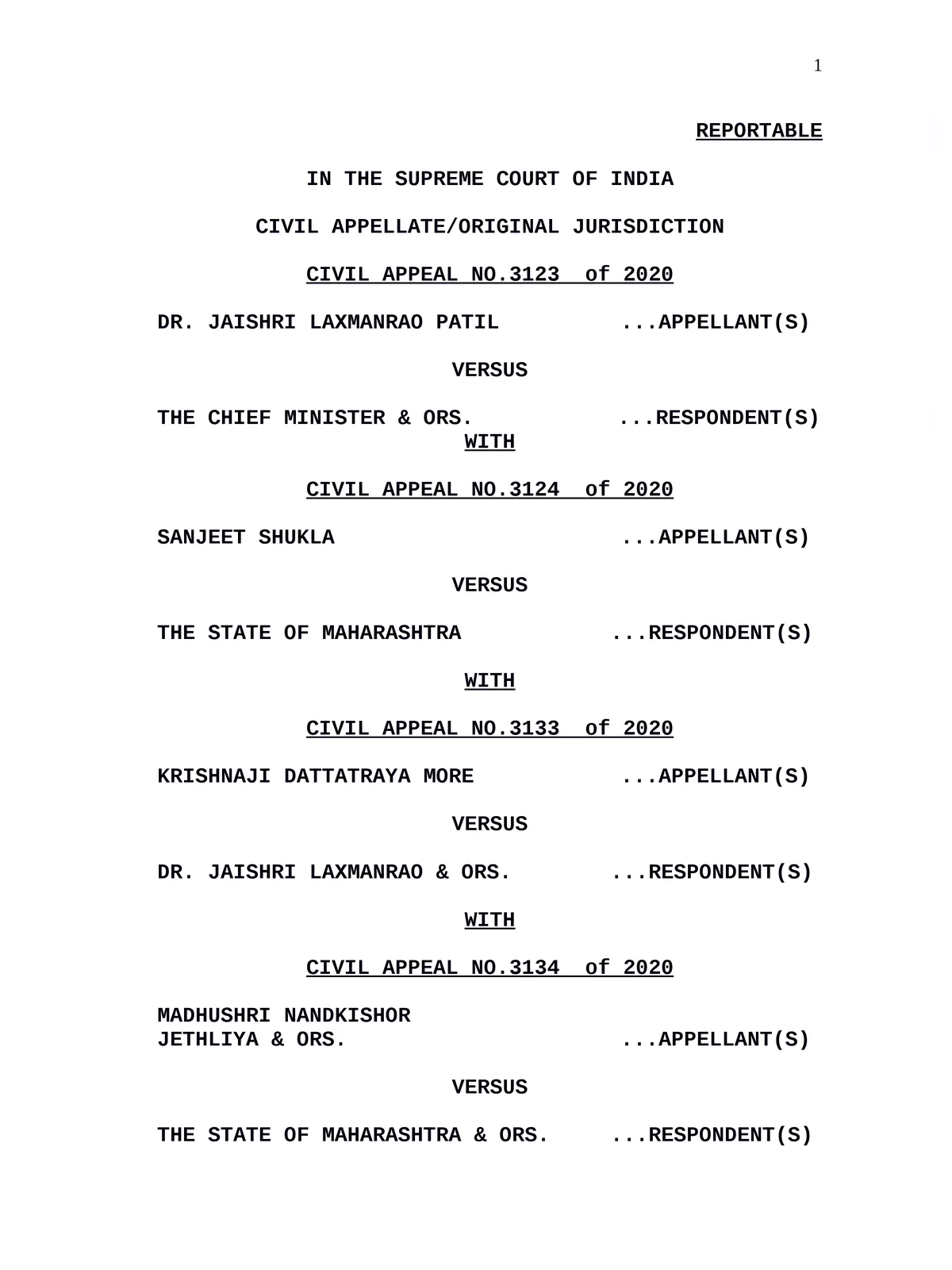Maratha Reservation Supreme Court Judgment - Summary
The Maratha Reservation Supreme Court Judgment PDF is a significant legal decision delivered on 5th May 2021. It struck down the Maharashtra State Reservation for Socially and Educationally Backward Classes (SEBC) Act, 2018, which aimed to provide reservation to the Maratha community in public education and government jobs (Jaishri Laxmanrao Patil v. Chief Minister).
Supreme Court’s Decision
The Supreme Court stated that there were no extraordinary circumstances to justify granting reservation to the Maratha community beyond the 50 percent ceiling set by its 1992 decision in Indra Sawhney v. Union of India.
The Court observed, “The 2018 Act, amended in 2019 to grant reservation to the Maratha community, does not present any exceptional circumstance to exceed the ceiling limit of 50 percent reservation.”
Furthermore, the Court explained that the 2018 Act violates the core principles of equality, as exceeding the 50 percent ceiling breaches Articles 14 and 15 of the Constitution.
Key Findings
During the ruling, the Supreme Court made it clear that the earlier judgment in Indra Sawhney v. Union of India does not need to be referred to a larger Bench. The 50 percent ceiling on reservation established in that case remains valid.
The Court added, “We do not find any grounds for referring the Indra Sawhney judgment to a larger Bench, as it has been consistently upheld by this Court and supported by at least four Constitution Benches.” It reiterated the key points made in paragraphs 809 and 810 of the Indra Sawhney judgment.
Moreover, the Court highlighted that neither the Gaikwad Commission report nor the Bombay High Court’s judgment established an extraordinary situation for the Maratha community to exceed the 50 percent ceiling.
In conclusion, the Court stated, “The findings of the commission are unsustainable. There is no case for exceeding the ceiling limit of 50 percent for granting reservation to the Marathas.”
The Act
The Maharashtra State Reservation for Socially and Educationally Backward Classes (SEBC) Act was designed to provide 16 percent reservation for the Maratha community in educational institutions and government employment.
This Act faced challenges in the Bombay High Court, where petitioners argued it was a violation of the Constitution of India, as it aimed to increase the total reservation in Maharashtra from 52 percent to 68 percent. This move contradicts the Supreme Court’s ruling in Indra Sawhney v. Union of India.
Additionally, it was argued that following the Constitution (102nd Amendment) Act, effective from August 2018, the State legislature no longer has the power to declare a specific class as socially and educationally backward.
Article 342A mandates that the identification of communities in the States as socially and educationally backward classes be done by the President, in consultation with the Governor.
For more details, download the Maratha Reservation Supreme Court Judgment in PDF format using the link given below.
